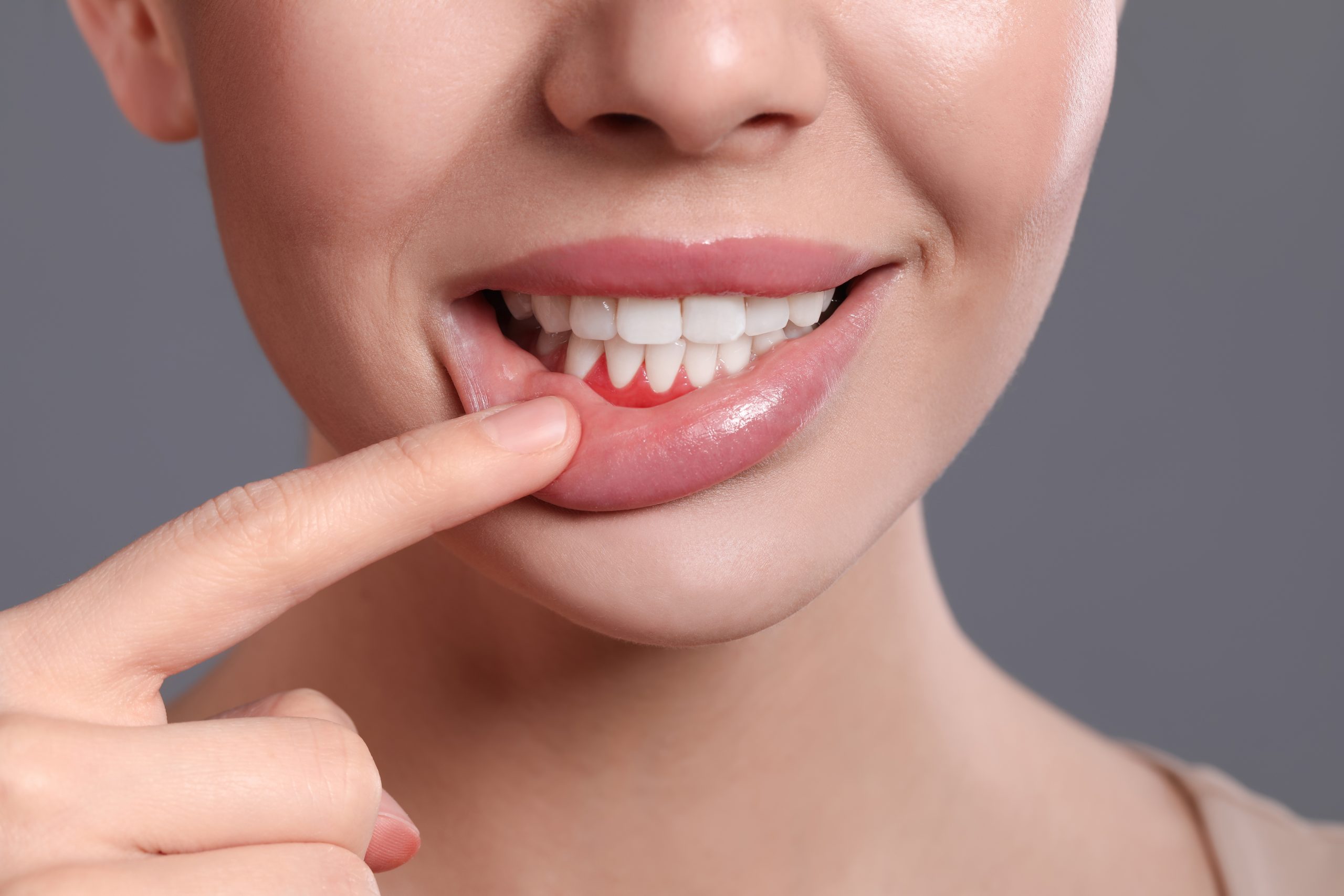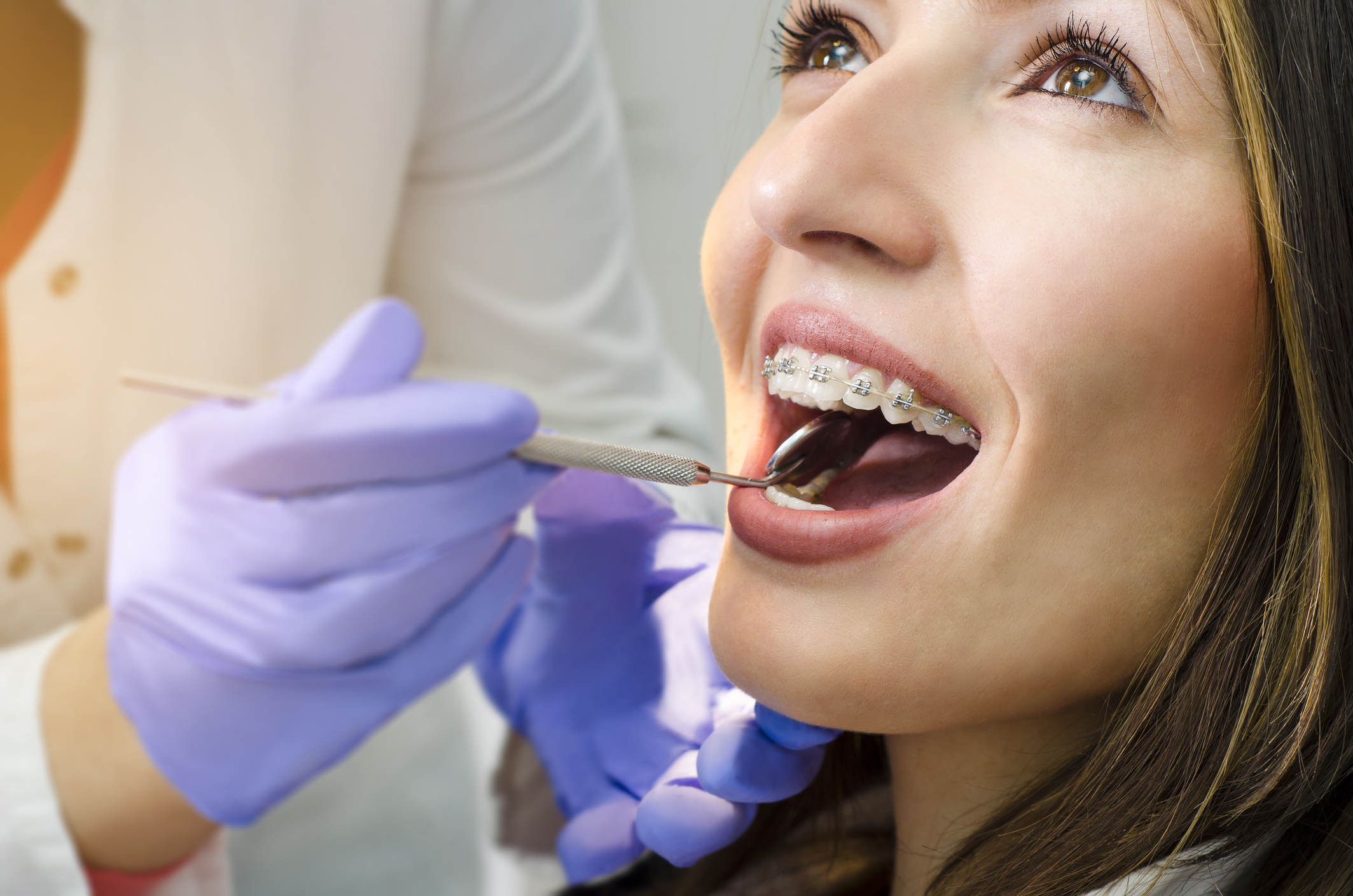Some of us may recall television commercials for toothpaste and mouthwash where the actors utter the word “gingivitis” in an ominous tone, for comedic effect.
In reality, gingivitis – an early stage of periodontitis or “gum disease” affects many mouths across America, sometimes with symptoms that may be – initially – barely noticeable.
But make no mistake – problems with your gums can become major problems for your teeth and entire mouth.
Periodontitis – a more severe form of gingivitis, is not common in adolescents, but nevertheless can be a significant impediment when you’re undergoing orthodontic treatment. Let’s delve deeper:
Symptoms of Periodontitis
There are a variety of symptoms a patient experiencing periodontal disease can exhibit. Look for:
- Red, swollen, sore gums
- Bleeding from brushing or flossing
- Receding gums from the teeth
- Loose or separating teeth with abnormal spacing
- Recurring bad breath
While a lack of consistent, thorough oral health care routine and a diet too liberal in sugar/starch is usually the tell-tale cause of early onset gum disease in children, there are other “causes” of juvenile onset periodontal disease:
- Certain genetics
- Mouth breathing habits that dry out the gums and teeth
- Autoimmune or systemic diseases
- Diabetes
- Hormonal changes in the body, like puberty
- Medicine that can cause gums to overgrow
The Important Teenage Years
Mild or moderate periodontitis in adolescents is not common, but can worsen by the early teenage years if not addressed. If this coincides with the patient pursuing orthodontic treatment to correct teeth/jaw issues, the severity of the periodontitis is a variable to be considered before treatment begins.
Significant inflammation of the gums, bleeding gum tissue, large amounts of plaque and tartar, and any loss of alveolar bone (a part of the maxilla and mandible that supports the teeth by forming attachment for fibers of the periodontal ligament) are signs of periodontitis.
Ideally, periodontitis will be addressed before the patient starts orthodontic treatment. The patient, patient’s family, and their general dentist will commit to a plan of diligent brushing, flossing and appointments for deep cleanings until the symptoms subside.
While placement of orthodontic appliances or wearing orthodontic aligners in and of itself does not cause gum disease, periodontitis complicates the extra attention to brushing and flossing required for orthodontic treatment. As frequently as possibly, we’d like to start treatment with a “clean slate” and a healthy mouth.
On rare occasions, we may pause treatment if periodontitis grows so severe it impedes treatment progress. Once the symptoms have satisfactorily subsided, appliances will be placed again, and treatment will resume.
Adults, Periodontal Disease and Braces
The Centers for Disease Control (CDC) shares that roughly 1/2 of adults experience some form of periodontal disease. In parallel, almost 25% of American orthodontic patients are over the age of eighteen. So, the need to correct both orthodontic issues and periodontal problems is a reality for many adults that we recognize.
Once again, because periodontal disease can complicate the already rigorous care required for your oral health while wearing braces or Invisalign aligners, we prefer the issue is addressed prior to beginning treatment. Periodontal disease in adults, if not addressed aggressively, can be irreversible, leading to gum recession, bone loss and even the loss of teeth in severe cases.
We understand and appreciate that many adults do not seek out a new dentist once they “age out” of their pediatric dentist’s practice. We will gladly refer you to a dentist or periodontist to help you get your oral healthcare back on track.
An Ounce of Prevention is Worth a Pound of Cure
Whatever your age, do not ignore the signs of periodontitis – a “battle plan” can be effectively mounted, and – if the routine is committed to – your gum health will improve.
Parents: here is where you can be “All-Stars” in monitoring your child’s brushing, flossing and oral healthcare habits from an early age, so diligent care becomes second nature!
Have questions about this topic? Are you in orthodontic treatment and concerned a problem with your gums may become a larger issue? Please contact us!


